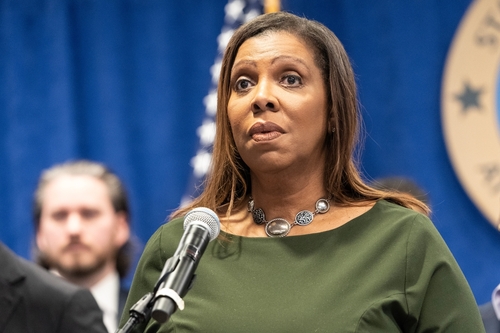
West to pay $300B yearly for climate, critics unsatisfied
Listen To Story Above
Climate negotiators at the U.N.’s COP29 summit delivered their ultimate proposal Sunday, requesting wealthy nations commit $300 billion annually to support developing countries through 2035.
The announcement sparked immediate backlash from climate activists who insisted the figure should reach at least $400 billion to adequately address global needs.
Parvana Valiyeva, Member of the Azerbaijan Parliament, highlighted COP29’s pivotal achievements in Baku, including the introduction of the New Collective Quantified Goal (NCQG). She noted that climate finance targets have tripled to $300 billion annually, aiming for $1.3 trillion… pic.twitter.com/G33yHzcOPL
— AnewZ (@Anewz_tv) November 24, 2024
The summit, marking the 19th gathering of the U.N. Framework Convention on Climate Change (UNFCCC), drew 50,000 international participants to discuss solutions for the purported climate emergency.
In Azerbaijan’s sports stadium, approximately 200 nations endorsed the controversial financial agreement during early morning hours.
“It’s a paltry sum,” thundered India’s delegate Chandni Raina. “This document is little more than an optical illusion. This, in our opinion, will not address the enormity of the challenge we all face.”
The response from developing nations was swift and harsh. Sierra Leone’s climate minister Jiwoh Abdulai criticized wealthy nations’ apparent unwillingness to support vulnerable countries facing climate challenges.
“This is an insult,” declared Nigeria’s representative Nkiruka Maduekwe, expressing her nation’s disappointment.
Countries attending the COP29 meeting in Baku adopted a global funding target of $300 billion per year by 2035 to help poor countries cope with the impacts of climate change.
Let's see if the (insufficient) target can be achieved and where the money goes. pic.twitter.com/WMQmNs6yEG
— Aida Greenbury (@AidaGreenbury) November 24, 2024
Critics targeted Azerbaijan, a major fossil fuel producer, suggesting the host country lacked commitment during a year marked by unprecedented climate disasters and record-breaking temperatures.
The arrangement requires developed countries to provide financial support to help developing nations reduce emissions and strengthen their climate resilience, though falling short of the U.N.-commissioned economists’ recommended $390 billion contribution.




